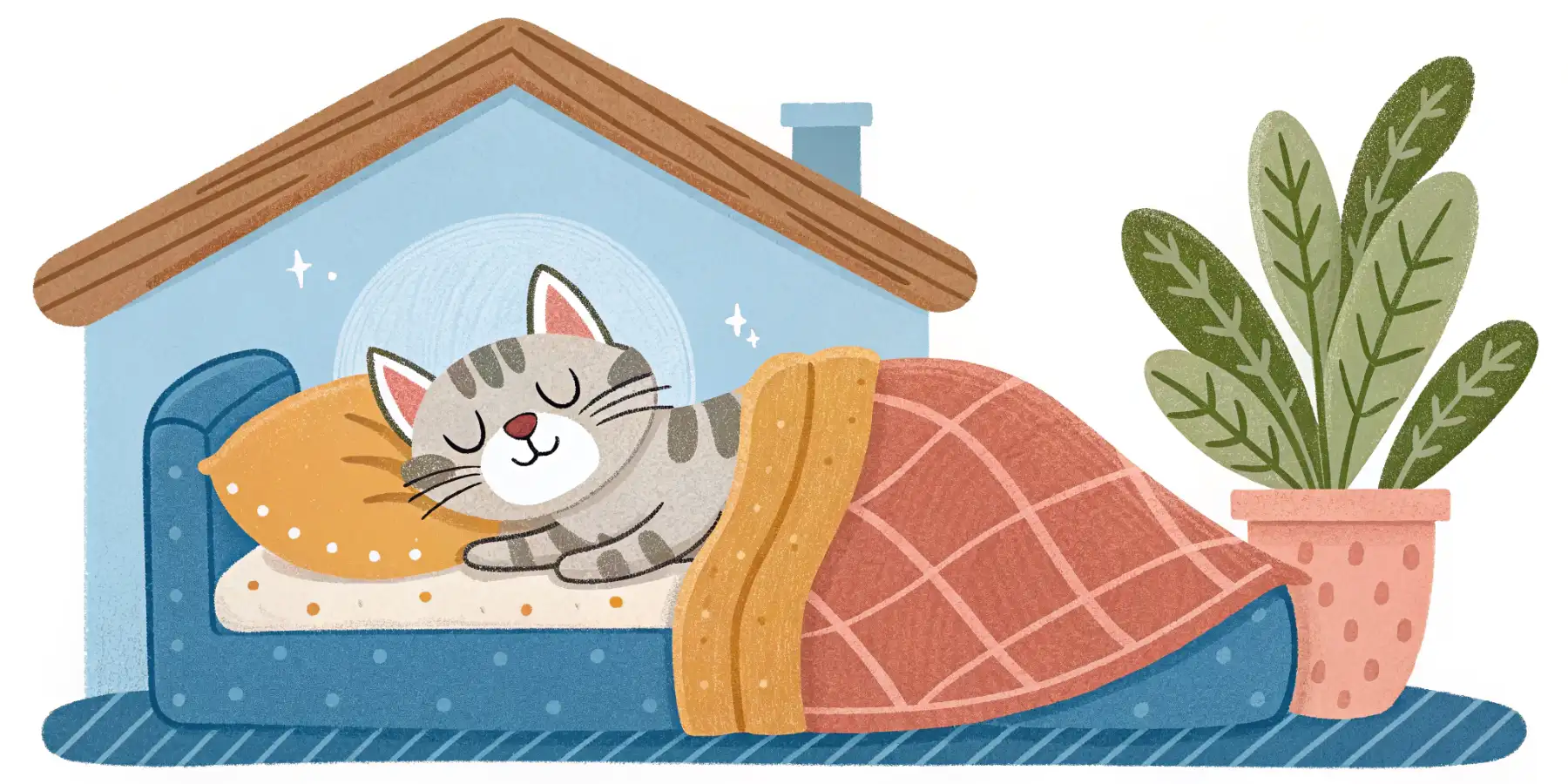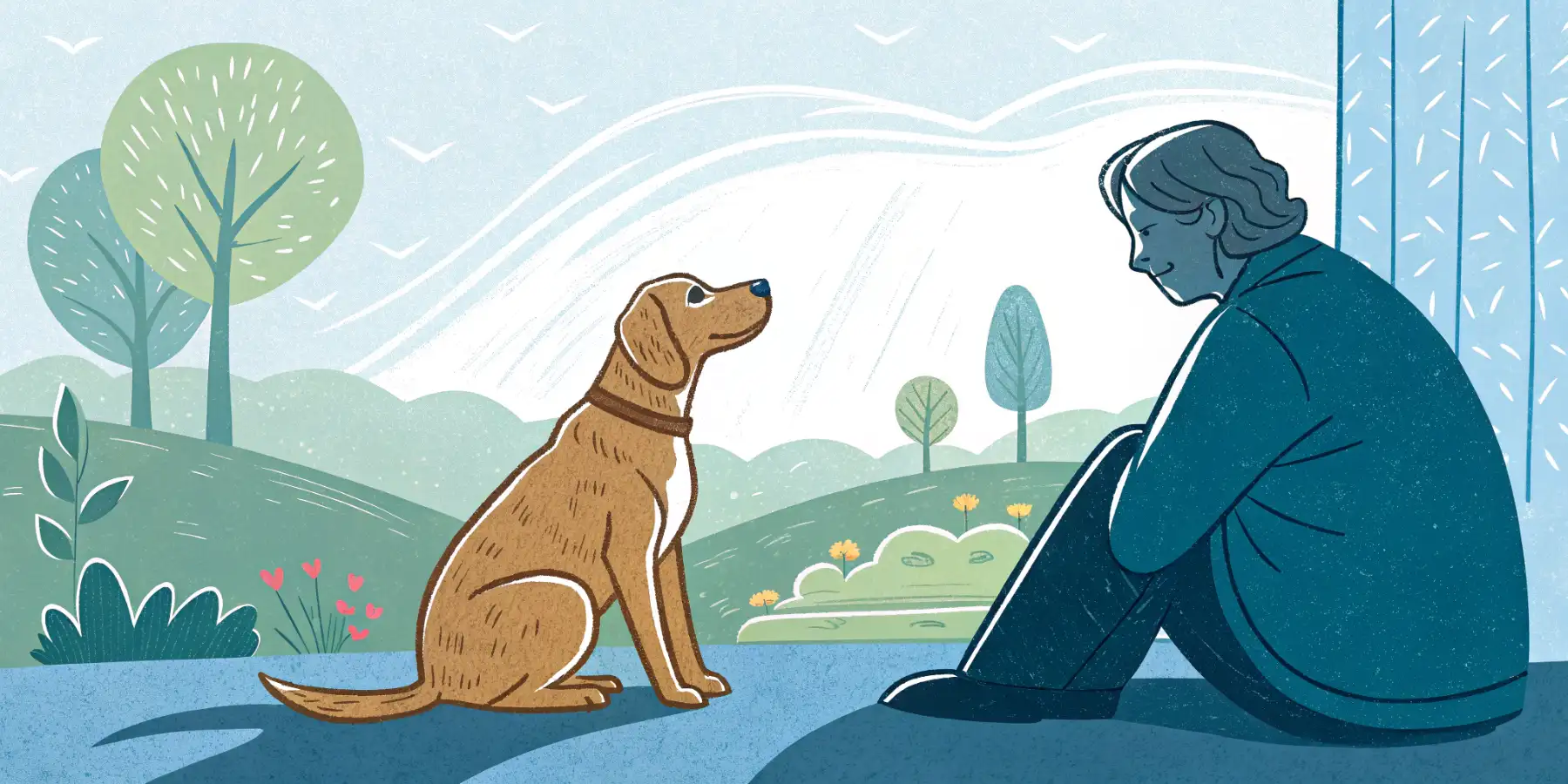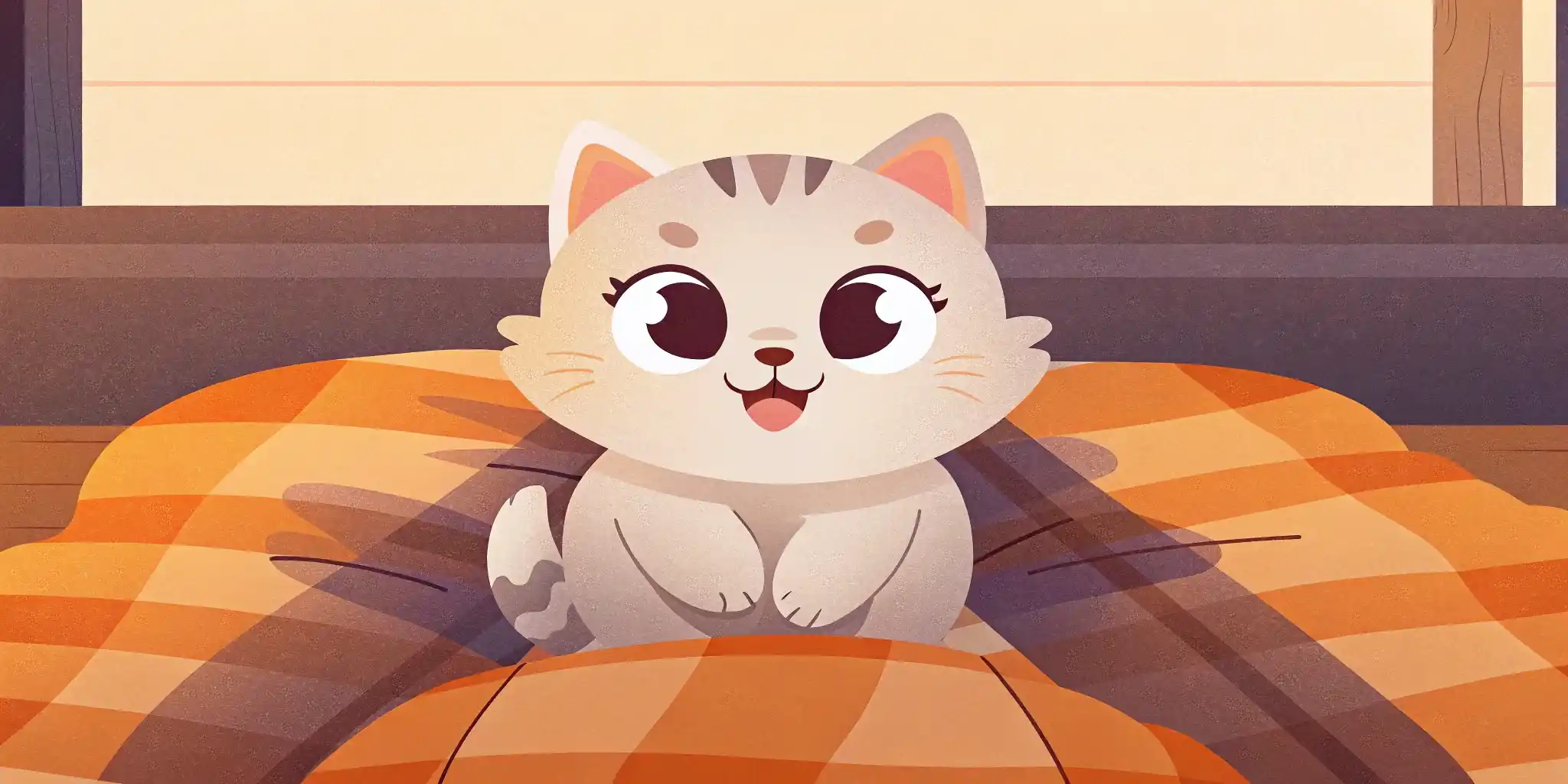
Kitten Health: URIs, Diarrhea & When to Worry
New kitten acting sickly? Learn to spot early URI signs & diarrhea. Know when to worry & keep your tiny friend healthy! #kittenhealth
Recognizing Common Kitten Health Issues: URIs, Diarrhea, and When to Worry
Bringing a new kitten into your home is an exciting time! Those tiny paws, playful antics, and endless purrs are undeniably heartwarming. However, along with the joy comes responsibility. Kittens, especially those from shelters or rescues, are particularly susceptible to a range of health issues. Being able to recognize the signs of common ailments, like upper respiratory infections (URIs) and diarrhea, is crucial for ensuring your new friend has a long and healthy life. Let’s dive into what you need to know.
Understanding Upper Respiratory Infections (URIs) in Kittens
Think of a kitten URI like a common cold in humans. It’s a viral or bacterial infection that affects the upper respiratory system – the nose, throat, and sinuses. Kittens are particularly vulnerable because their immune systems are still developing. It’s one of the most frequently encountered common kitten health problems.
Symptoms to Watch For:
- Sneezing: Frequent and forceful sneezing, often accompanied by nasal discharge.
- Nasal Discharge: Clear, yellow, or green discharge coming from the nose.
- Eye Discharge: Watery or pus-like discharge from the eyes. They may also squint or keep their eyes closed more than usual.
- Coughing: A dry or moist cough.
- Lethargy: Reduced energy levels and a general lack of playfulness. Your kitten might seem more tired than usual.
- Loss of Appetite: A decreased interest in food, which can be a serious concern for a growing kitten.
- Fever: A fever can be hard to detect at home without a thermometer specifically designed for pets. If your kitten is lethargic and has other symptoms, a fever is a strong possibility.
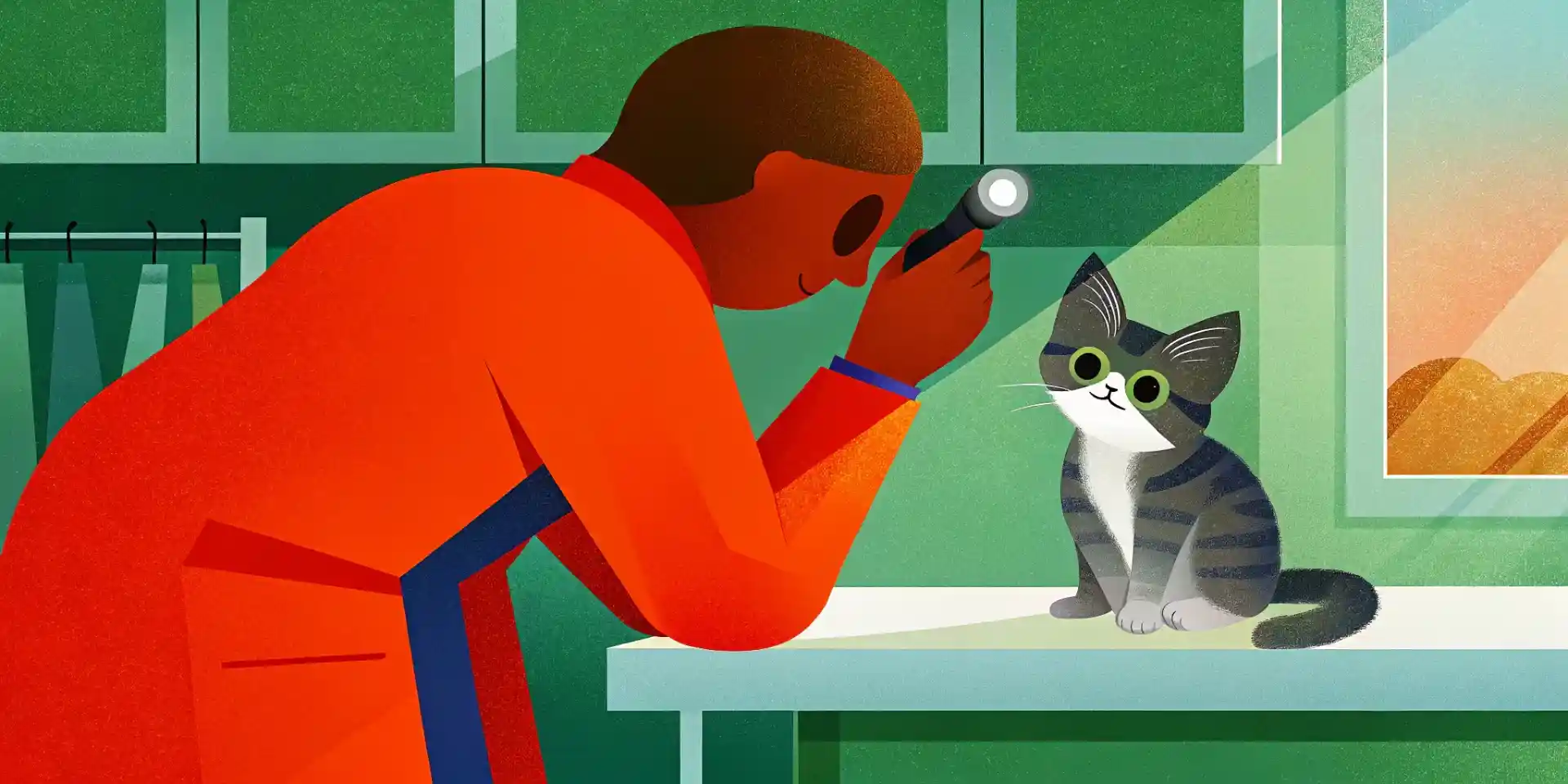 A vet gently examines a kitten’s eyes for signs of URI.
A vet gently examines a kitten’s eyes for signs of URI.
What to Do:
If you suspect your kitten has a URI, don’t delay a visit to the veterinarian. While some mild cases might resolve on their own, it’s always best to get a professional diagnosis and treatment plan. URIs can quickly escalate into more serious conditions like pneumonia, especially in young kittens.
In my experience, early intervention is key. Your vet might prescribe antibiotics, antiviral medications, or supportive care like nasal decongestants or eye drops. They’ll also advise you on how to keep your kitten comfortable, such as using a humidifier to moisten the air and gently cleaning their nasal discharge with a warm, damp cloth. Keeping your kitten eating is vitally important. Offer enticing, smelly foods to stimulate their appetite. Warming up canned food slightly can also increase its aroma and make it more appealing. In severe cases, hospitalization and IV fluids may be necessary. Prompt treatment for feline upper respiratory infections is essential.
Dealing with Kitten Diarrhea
Diarrhea is another common ailment in kittens, and it can have various causes, from dietary indiscretions to parasites to infections. While a single episode of soft stool might not be cause for alarm, persistent or severe diarrhea warrants a vet visit.
Possible Causes of Diarrhea in Kittens:
- Dietary Changes: Switching to a new food too quickly can upset a kitten’s digestive system.
- Parasites: Intestinal parasites like worms and coccidia are common in kittens, especially those from shelters or rescues.
- Bacterial or Viral Infections: Certain bacteria and viruses can cause diarrhea.
- Food Allergies or Intolerances: Some kittens may be sensitive to certain ingredients in their food.
- Stress: Stressful situations, such as moving to a new home, can sometimes trigger diarrhea. Kitten diarrhea after adoption is surprisingly common.
When to Worry:
Not all diarrhea is created equal. Pay close attention to the following signs:
- Frequency: Diarrhea that occurs more than a few times a day.
- Consistency: Watery or liquid stool.
- Blood or Mucus: The presence of blood or mucus in the stool.
- Other Symptoms: Vomiting, lethargy, loss of appetite, dehydration. Dehydration is a major concern with diarrhea, as kittens can quickly become dehydrated. Signs of dehydration include sunken eyes, dry gums, and skin that doesn’t snap back quickly when gently pinched.
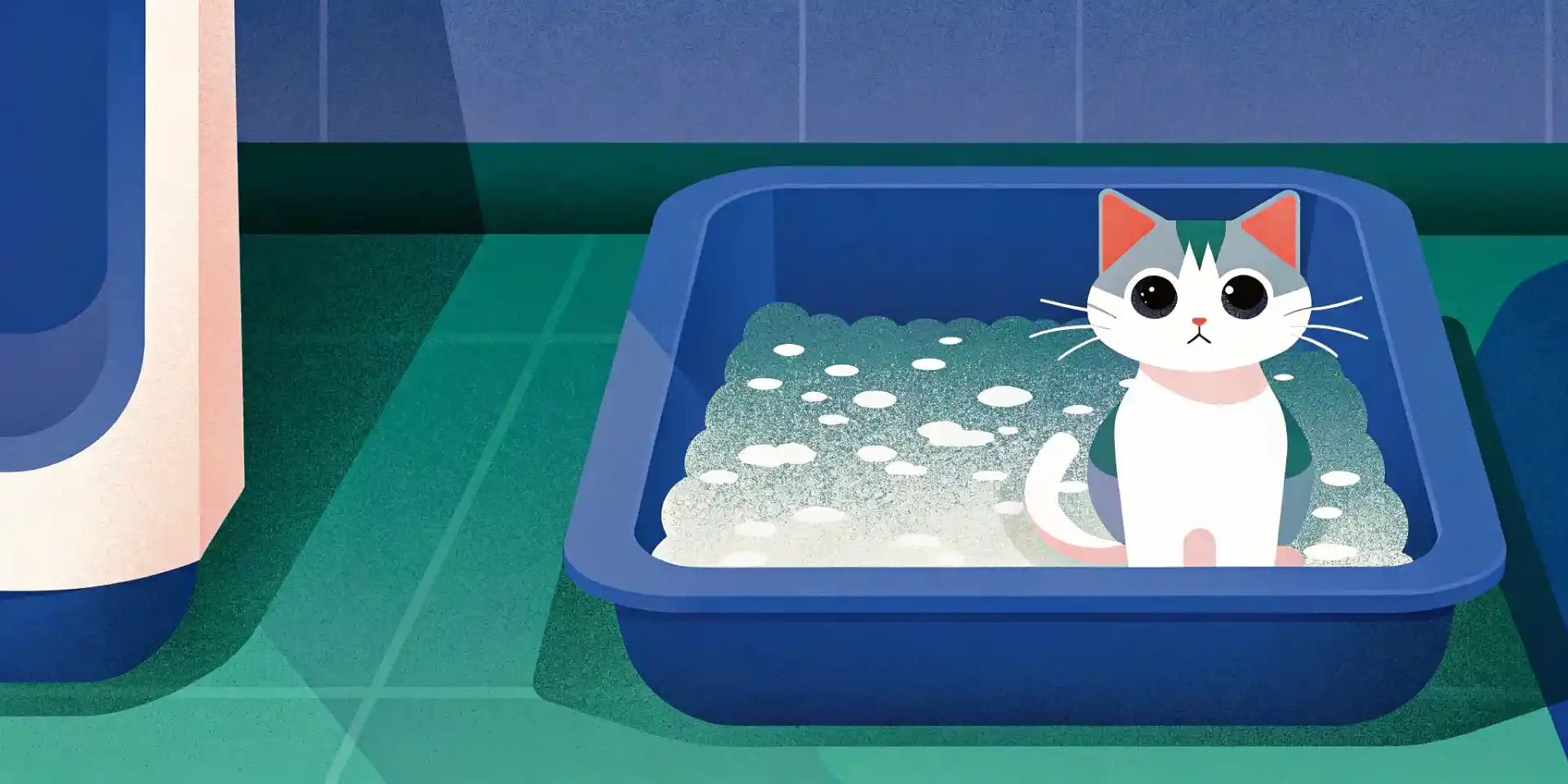 A kitten straining in the litter box, a sign of potential diarrhea.
A kitten straining in the litter box, a sign of potential diarrhea.
What to Do:
If your kitten has mild diarrhea without any other concerning symptoms, you can try a bland diet for 12-24 hours. Boiled chicken and plain white rice are good options. Ensure your kitten has access to plenty of fresh water to prevent dehydration.
However, if your kitten is showing any of the “worry” signs mentioned above, schedule a vet appointment immediately. The vet will perform a physical exam and may recommend fecal tests to check for parasites or bacterial infections. Treatment will depend on the underlying cause but may include deworming medication, antibiotics, probiotics, or fluid therapy. In my experience, probiotics can be incredibly helpful in restoring a healthy gut flora after a bout of diarrhea. I believe that every kitten should receive a quality probiotic supplement after any antibiotic treatment.
Knowing When to Worry: A General Guide
Ultimately, trusting your gut (no pun intended!) is essential. You know your kitten best, and if something seems off, it’s always better to err on the side of caution and seek veterinary care.
Here are some general red flags that warrant a vet visit:
- Any sudden change in behavior.
- Difficulty breathing or rapid breathing.
- Persistent vomiting.
- Severe lethargy or weakness.
- Seizures.
- Any signs of pain or discomfort.
- Failure to eat or drink for more than 24 hours.
 A healthy kitten playing with a toy, showcasing its energy and vitality.
A healthy kitten playing with a toy, showcasing its energy and vitality.
Remember, preventative care is key to keeping your kitten healthy. Regular vet checkups, vaccinations, and parasite control are essential for protecting your new friend from common diseases. Building a strong relationship with your veterinarian is one of the most important things you can do for your kitten’s well-being. They can provide personalized advice and guidance based on your kitten’s individual needs and circumstances.
